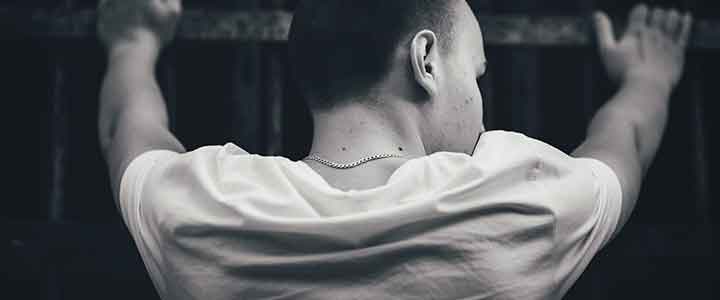A man has just lost his income due to uncertainty in the market or to a global pandemic destroying his industry. He comes home to his family, sad, distraught, and feeling like he’s failing them. He feels like a failure to himself.
He turns on the news, and there is no good news. It’s all bad. He knows he has no income, and he has a family to support. He doesn’t know where he is going to get money or food from. He’s anxious, scared, despondent, and short tempered.
His children’s laughter now grate on his nerves. They play and run about, and he snaps at them over nothing; but to him it is something. He can’t stand the noise and talking. Every time his wife talks to him, he feels like she is judging him for his failures. He lashes out at her too. He calls his children and his wife “stupid”. He yells at them to shut up; and he might even raise a hand at them.
Over the next weeks or months, his personality and his behaviour start changing. He’s starting to gamble, or locking himself in a room playing video games all day and night. He may get even more violent or verbally and emotionally abusive as the days and weeks wear on.
A scenario like this is being played out in many families and between many spouses. In the midst of a global pandemic and city or country-wide shutdown, something like this should have been of pressing concern. In fact, many mental health professionals and counsellors did raise the alarm early on. Crisis and emergencies can trigger a change in people’s behaviour and mindset, and being forced together for weeks and months can bring out the worst in people and change the dynamic of their relationship and interactions.
In such cases and situations, the victims may no longer have easy access to shelters, or people and organisations who are willing to help them. They can’t find safety and solace with friends, and they may not even be able to find that safety with family since it might well be people in the family that is harming them.
One of the biggest challenges for people who are naturally drawn to helping others is determining how to help, and how to overcome barriers and obstacles in order to help the people most in need. Sometimes that obstacle is the person themselves, and sometimes that obstacle might be yourself, or a lack of knowledge and understanding.
College of Allied Educators’ accredited Counselling Psychology programmes will train individuals to understand thoughts and emotions; and with the right tools, allow individuals to help themselves and others who may be going through very sensitive and difficult situations.
- POSTGRADUATE DIPLOMA IN COUNSELLING PSYCHOLOGY
Postgraduate Diploma in Counselling Psychology (PGDICP) is a counselling psychology course accredited by the Singapore Association for Counselling (SAC). The part-time Postgraduate Diploma in Counselling Psychology programme focuses on developing and enhancing experiential knowledge and skills through a holistic approach. Some of the subjects covered include Counselling Children, Addiction Intervention, Crisis Intervention, and Family Therapy.
For a FREE COURSE PREVIEW
CALL US at 6533-0031 EMAIL your enquiry to ENQUIRY@ICAE.EDU.SG
or Register for your free preview below:

